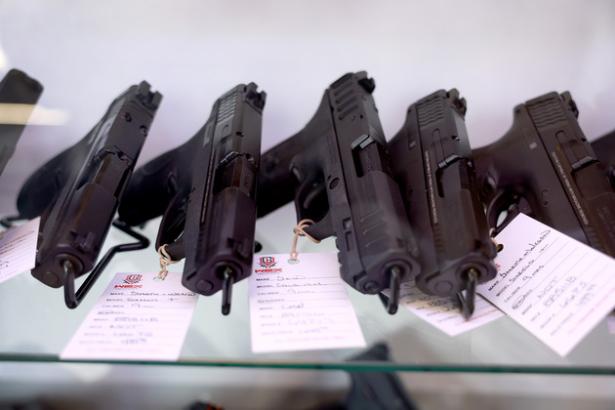A federal appeals court ruled Thursday that the government can’t stop people who have domestic violence restraining orders against them from owning guns — the latest domino to fall after the U.S. Supreme Court’s conservative majority set new standards for reviewing the nation’s gun laws.
Police in Texas found a rifle and a pistol at the home of a man who was the subject of a civil protective order that banned him from harassing, stalking or threatening his ex-girlfriend and their child. The order also banned him from having guns.
A federal grand jury indicted the man, who pled guilty. He later challenged his indictment, arguing the law that prevented him from owning a gun was unconstitutional. At first, a federal appeals court ruled against him, saying that it was more important for society to keep guns out of the hands of people accused of domestic violence than it was to protect a person’s individual right to own a gun.
The appeals court withdrew its original decision and on Thursday decided to vacate the man’s conviction and ruled the federal law banning people subject to domestic violence restraining orders from owning guns was unconstitutional.
Specifically, the court ruled that the federal law was an “outlier that our ancestors would never have accepted” — borrowing a quote from the Bruen decision.
The decision came from a three-judge panel consisting of Judges Cory Wilson, James Ho and Edith Jones. Wilson and Ho were nominated by former Republican President Donald Trump, while Jones was nominated by former Republican President Ronald Reagan.
The U.S. Justice Department Thursday night issued the following statement from Attorney General Merrick B. Garland following the decision: “Nearly 30 years ago, Congress determined that a person who is subject to a court order that restrains him or her from threatening an intimate partner or child cannot lawfully possess a firearm. Whether analyzed through the lens of Supreme Court precedent, or of the text, history, and tradition of the Second Amendment, that statute is constitutional. Accordingly, the Department will seek further review of the Fifth Circuit’s contrary decision.”
Thursday’s ruling overturned the federal law and is not likely to impact similar state laws, including one in California. Still, California Gov. Gavin Newsom, a Democrat, called the judges who issued the ruling “zealots” who are “hellbent on a deranged vision of guns for all, leaving government powerless to protect its people.”
Chuck Michel, president of the California Rifle and Pistol Association, said the problem with laws like the one the federal appeals court struck down is that they are too broad and don’t take into account the details of each case.
He offered as an example a client of his whose neighbor filed a restraining order against them because they had pointed a security camera on their property.
“They lost their gun rights,” he said. “When they do a blanket prohibition without considering individualized circumstances, they shoot the dogs with the wolves.”
Thursday’s ruling demonstrates the far-reaching impacts of the Bruen decision. In California, the decision has prompted lawmakers to overhaul their law regarding permits to carry concealed weapons.
Wednesday, Newsom endorsed a bill in the state Legislature that would ban people from carrying concealed guns in nearly all public places, with an exception for churches and businesses who put up a sign saying guns are OK.


Spread the word